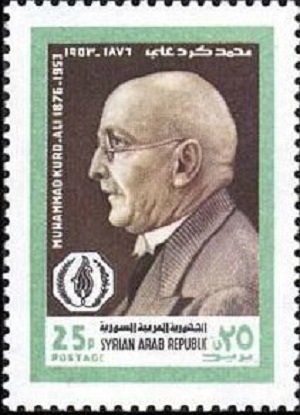The Ministry of Culture recently honored Syrian writer and thinker Mohammad Kurd Ali, who founded the Arabic Language Academy one hundred years ago, by publishing his book titled “The Plans of al-Sham” which was written in 1925. The six volume book presented a detailed study of the history of Syria. The first volume deals with the history of Syria from the dawn of history until pre-Islamic period.
In the second volume, the writer casts light on the Islamic periods until the Ottoman occupation of the Arab Homeland.
The third chapter was devoted to deal with the division of Syria Proper (Syria, Palestine, Jordan and Lebanon) between Britain and France according to the ill-famed agreement Sykes Picot in 1916. He also talked about the appearance of Zionism refuting the allegations of Zionist leaders about their right to establish a national homeland for the Jews in Palestine.
The fourth volume sheds light on the literary and social aspects of life in Syria, especially fine arts and acting.
Then he casts light on farming, industry and trade in Syria. He underlined the importance of the geographical location of Syria as a main factor for the flourish of the economic life in the country.
The last volume throws light on the architecture of mosques, churches, hospitals and schools highlighting the diverse architectural designs and their geometric splendor.
Kurd ‘Ali loved writing and journalism and developed an early interest in reading books and collecting them since childhood. At the age of sixteen, he was writing news articles and in 1897, he was entrusted with editing the government weekly newspaper (Sham).
Kurd ‘Ali afterwards left for Cairo and remained there for ten months during which he worked as the editor of Al-Ra’ed Almasri (the Egyptian pioneer) newspaper.
In politics, Kurd Ali opposed the Ottoman occupation measures, especially the Ottomans’ attempt to impose the Turkish language as the official language at schools and state’s institutions. He was imprisoned several times due to his national stands and calls for the independence of the Arab states from the Ottoman occupation.
K.Q.

